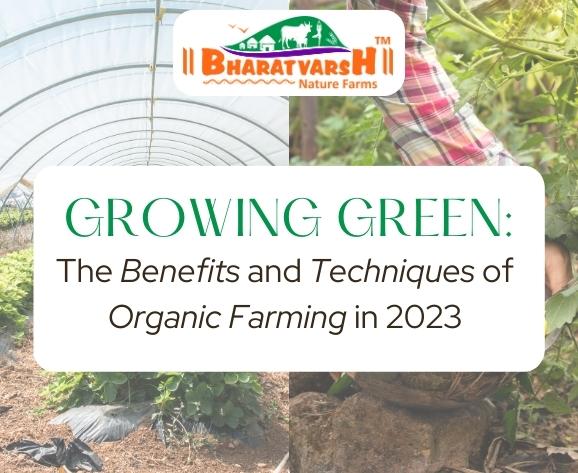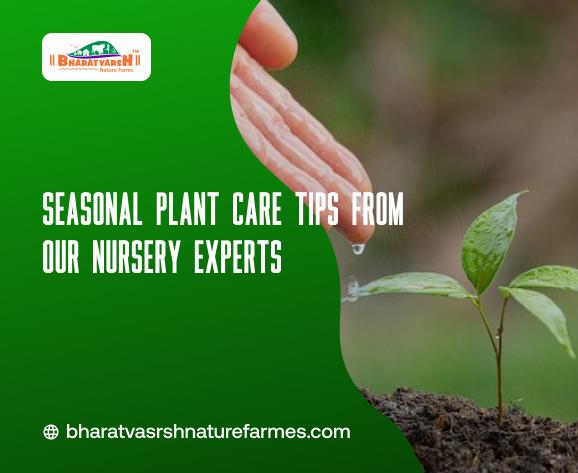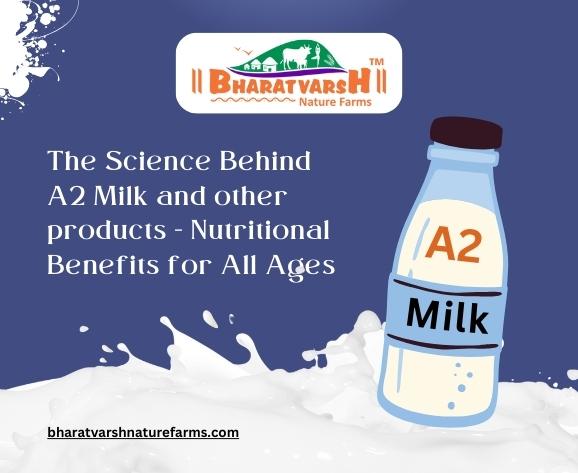As the world progresses, there is an increasing demand for healthier and more sustainable methods of agriculture. This has led to a rise in organic farming practices – and for good reason. Organic farming is not only better for the environment but also for our health.
Organic farming is a method of agriculture that relies on techniques such as crop rotation, green manure, and compost to maintain soil health and fertility. It also avoids the use of synthetic pesticides and fertilizers.
In this article, we will discuss the benefits of organic farming and provide some tips on how to get started.
What is organic farming?
Organic farming is an agricultural method that mimics natural ecosystems and cycles. It relies on sustainable and holistic practices to promote soil health and use natural resources more efficiently.
Organic farming takes the idea of crop rotation from traditional farming but takes it a step further. Organic farmers rotate various crops to reduce pests, manage fertility, and promote soil health. Rotating crops prevents the build-up of pests and diseases, which can shackle traditional farming.
Organic farmers also employ beneficial insects and natural pest control methods. These can include things like companion planting, inviting predators, or using DIY or commercially made traps. Organic farmers also use traps and exclusion methods to control pests without the use of synthetic pesticides.
Organic farming avoids the use of synthetic fertilizers and synthetic pesticides, opting instead for natural options. Organic farmers use things like animal manure, green manure, and compost to add fertility to the soil. Composting also returns valuable organic matter and nutrition into the soil.
The benefits of organic farming
Organic farming has numerous benefits. It helps preserve soil health, as well as biodiversity. Organic farmers rely on healthy soil, as well as beneficial insects, predators, and other populations to maintain natural ecosystems and keep them balanced.
Organic farming can also help with climate change, as it avoids synthetic chemicals, which can be released into the atmosphere. By avoiding synthetic fertilizers and pesticides, organic farming decreases the overall carbon footprint of the production process.
Organic farming is often more labour-intensive than traditional farming, as it does not rely on synthetic chemicals for pest and fertility management. This leads to more jobs for farmers and farm workers, resulting in a healthier agricultural economy.
It also produces higher-quality food. Many studies have found organic food to be more nutritious than conventionally grown food, with higher concentrations of beneficial compounds like antioxidants and vitamins. Additionally, organic meat and dairy products often contain fewer hormones and antibiotics than conventionally produced meat and dairy products.
This method of farming is also better for the environment, as it avoids synthetic chemicals that can run off into streams, rivers, and other water sources. By maintaining existing biodiversity and increasing wildlife habitat, organic farms create sustainable buffer zones for wildlife and aquatic species.
The Techniques of Organic Farming
Organic farming involves a number of techniques that allow farmers to produce crops without relying on synthetic fertilizers and pesticides. Here are some of the most popular organic farming techniques:
- Crop Rotation – Crop rotation is the practice of changing the crops grown in a particular field each year in order to increase sustainability. By alternating crops, farmers can promote diverse habitats for beneficial organisms and replenish the soil from year to year.
- Cover Cropping – Cover cropping is the use of different crops to cover the land between the regular crops. These cover crops help protect and replenish the soil, improve soil health, and control weed growth. They can also be used as food for grazing animals or as animal feed.
- Composting – Composting is the process of turning organic material, such as plant matter and food waste, into a rich, dark powdery substance that can be used to improve soil fertility. By adding compost to the soil, farmers can help increase organic matter, improve water and nutrient retention, and reduce the need for synthetic fertilizers.
- An Integrated Pest Management System – This system is used to prevent and control pests without relying on chemical pesticides. These methods can include planting pest-resistant crops, using physical barriers, encouraging natural predators, and using natural pest repellents.
Organic farming is becoming increasingly popular as the world becomes more aware of its environmental and health impacts. By learning and
Why Organic Farming Is Important
Organic farming is an important addition to sustainable agriculture for a number of reasons. Here are some of the reasons why organic farming is gaining popularity:
- It reduces the use of synthetic pesticides and fertilizers, thus reducing our exposure to potentially toxic chemicals.
- It helps improve soil health, promote biodiversity and reduce land degradation.
- It encourages farmers to make better use of locally available resources and materials, reducing their environmental impact.
- It reduces reliance on oil-based inputs, especially for synthetic fertilizers and pesticides.
- It supports the local economy, creating more jobs in the area, and encourages investment in the local community.
Organic farming is a practice that can help create a healthier and more sustainable world. As we move into the future, more and more farmers are likely to adopt this practice, as more people become aware of its benefits.
How to start organic farming
Organic farming is increasingly becoming the farming method of choice. For those who are new to this practice and would like to get started on organic farming, here are some tips and techniques to help you get started:
- Research: Read up on organic farming and familiarize yourself with the techniques and principles.
- Plan: Come up with a plan for your farm. Consider the type of crops you will be growing, the size of the farm, and the resources available to you.
- Learn Organic Practices: You will need to get certified in organic farming to be able to market and label your products as “organic”. Get familiar with concepts and techniques like composting, crop rotation, and pest management.
- Equipment: The equipment you need for organic farming varies depending on the type of farm and size of the operation. Consider the type of crops you will be growing, the size of the farm, and the resources you have access to.
- Network: Get connected with other farmers, agricultural associations, and agricultural departments. They can provide valuable advice and resources.
Organic farming can be a rewarding and profitable experience, but it requires dedication, organization, and knowledge. With these tips, you can start organic farming with confidence and success.
To wrap things up
Organic farming is not only a way to produce food in a more sustainable and efficient way, but also a way for farmers to take control of their business and become financially independent. With the right techniques, equipment, and determination, organically grown food can be profitable, and the demand for organic food is growing.
This method of farming requires very specific techniques, skills, and knowledge, which is why it’s important for those considering organic farming to do research and gain experience before taking the leap. For those who want to get certified, it is essential to understand the methods and principles of organic farming and to understand how to best manage resources.
In the end, it all comes down to dedication, organization, and knowledge. With the right information and resources, anyone can be successful in organic farming. With the right tools and guidance, organic farming can be a rewarding and profitable experience.
Reach Us at Bharatvarsh Nature Farms
If you need more information on organic products and its uses, or tips to grow a mini terrace garden in your home, you can always contact our team, who have decades of experience in the field of organic farming and organic lifestyle.
Interested in daily subscription and purchase of our dairy products? Then write to us for any enquiry @ info@bharatvarshnaturefarms.com
For more information and to place your order, visit the website: www.bharatvarshnaturefarms.com
Call Us @ 8603214214 or 8650214214







Comments